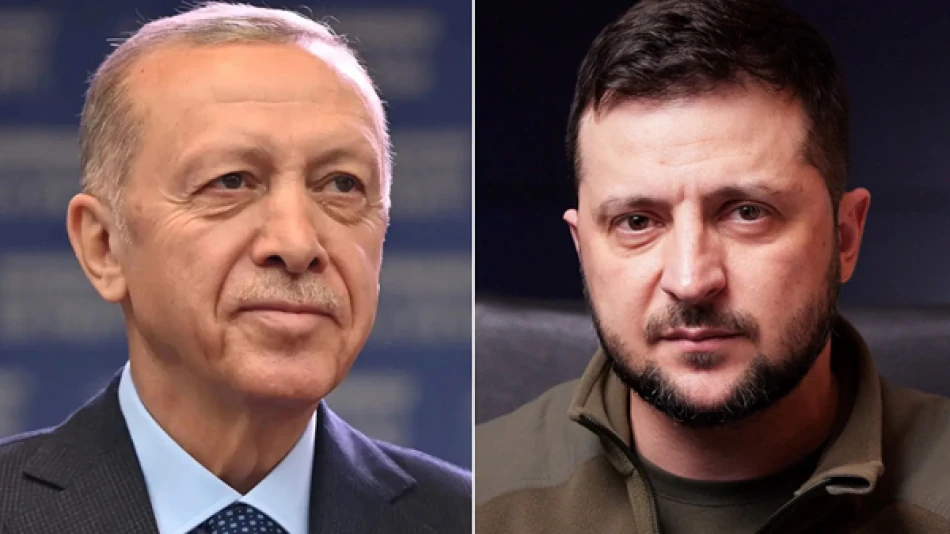
Turkey Offers to Facilitate Russia-Ukraine Negotiations, Seeks Diplomatic Resolution
Turkey Positions Itself as Peace Broker in Ukraine-Russia Conflict
Turkish President Recep Tayyip Erdoğan has offered Ankara's services as a mediator for high-level negotiations between Ukraine and Russia, signaling Turkey's continued ambition to play a pivotal role in resolving one of Europe's most significant conflicts since World War II. The offer, made during a Thursday phone call with Ukrainian President Volodymyr Zelensky, reinforces Turkey's strategic positioning as a diplomatic bridge between NATO allies and Russia.
Turkey's Diplomatic Gambit
According to the Turkish presidency, Erdoğan assured Zelensky that Turkey remains ready to facilitate any high-level talks between the warring nations. More significantly, the Turkish leader pledged that Ankara would continue contributing to Ukraine's security even after a peace agreement is reached—a commitment that extends Turkey's involvement well beyond the current conflict phase.
This diplomatic outreach comes at a critical juncture as the war approaches its third year, with both sides facing mounting pressure to find sustainable solutions amid battlefield stalemates and international fatigue over prolonged military support.
Historical Precedent and Strategic Calculations
Turkey's mediation offer builds on its previous diplomatic successes in the conflict. Ankara successfully brokered the Black Sea grain deal in 2022, which allowed Ukrainian agricultural exports to resume despite the naval blockade. Though that agreement eventually collapsed, it demonstrated Turkey's unique ability to maintain dialogue with both Moscow and Kyiv simultaneously.
Geopolitical Balancing Act
Erdoğan's approach reflects Turkey's complex geopolitical positioning. As a NATO member, Turkey has provided military support to Ukraine, including the highly effective Bayraktar drones that proved crucial in Ukraine's early defensive efforts. Yet Ankara has carefully avoided imposing sanctions on Russia and maintained economic ties with Moscow, particularly in energy and tourism sectors.
This balancing act serves Turkey's broader strategic interests. By positioning itself as an indispensable mediator, Turkey enhances its leverage with both Western allies and regional powers, potentially securing favorable terms in various bilateral relationships.
Market and Economic Implications
Turkey's mediation efforts carry significant economic undertones. The country's economy has been severely impacted by regional instability, inflation, and currency volatility. A successful peace process could restore stability to Black Sea trade routes, reduce energy price volatility, and attract foreign investment to the region.
For global markets, Turkey's diplomatic initiative represents a potential pathway to reduced geopolitical risk premiums in energy, agricultural commodities, and European equities. However, previous peace efforts have repeatedly stalled, making investors cautious about pricing in diplomatic breakthroughs.
Challenges Ahead
Despite Turkey's proven diplomatic capabilities, significant obstacles remain. Russia's territorial demands and Ukraine's sovereignty concerns appear irreconcilable at present. Additionally, any peace process would require coordination with major powers including the United States, European Union, and China—complicating Turkey's bilateral mediation approach.
The timing of Erdoğan's offer also coincides with shifting political dynamics, including potential changes in U.S. foreign policy and varying European approaches to the conflict. Turkey's success will largely depend on its ability to align these diverse stakeholder interests while maintaining credibility with both conflict parties.
Most Viewed News

 Layla Al Mansoori
Layla Al Mansoori






